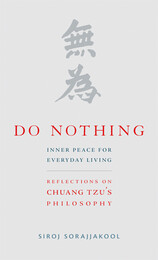
"Words," writes Chuang Tzu, "are for catching ideas; once you've caught the idea, you can forget the words." In Do Nothing, author Siroj Sorajjakool lends us some of his insightful words to help us all "catch" the provocative ideas of one of China's most important literary and philosophical giants—one who emerged at a time when China had several such giants philosophizing on Tao or "the Way."
Though his thinking dates back to the fourth century, Chuang Tzu's Tao has profound implications for our modern lives. He welcomes an existence that is radically removed from the image of normalcy that society often projects, wherein the individual must always strive for more, always seek greater productivity, and always try to better him or herself and his or her place in life. Chuang Tzu would posit that the definitions of normalcy, success, and happiness are arbitrarily assigned and that our rigid and unquestioning adherence to these so-called "norms" leads to existential restlessness and unease. Instead of striving, he would say, be still. Instead of acquiring, embrace nothingness. Instead of seeking to understand the limitlessness of the universe during your brief and extremely limited existence, enjoy the wonder of it.
Siroj Sorajjakool suggests that when we can embrace nothingness, we undergo a spiritual transformation that liberates us to see more clearly and truly find ourselves. He offers a very personal exploration of Chuang Tzu's Tao, first in its historical and literary context, and then in the context of our twenty-first century existence. What emerges is a liberating and highly readable meditation on the many lessons we can "catch" from Chuang Tzu on how we view our aspirations, our joys and sorrows, our successes and failures, and what it means to be a worthwhile person.

The importance of the rich corpus of “Masters Literature” that developed in early China since the fifth century BCE has long been recognized. But just what are these texts? Scholars have often approached them as philosophy, but these writings have also been studied as literature, history, and anthropological, religious, and paleographic records. How should we translate these texts for our times?
This book explores these questions through close readings of seven examples of Masters Literature and asks what proponents of a “Chinese philosophy” gained by creating a Chinese equivalent of philosophy and what we might gain by approaching these texts through other disciplines, questions, and concerns. What happens when we remove the accrued disciplinary and conceptual baggage from the Masters Texts? What neglected problems, concepts, and strategies come to light? And can those concepts and strategies help us see the history of philosophy in a different light and engender new approaches to philosophical and intellectual inquiry? By historicizing the notion of Chinese philosophy, we can, the author contends, answer not only the question of whether there is a Chinese philosophy but also the more interesting question of the future of philosophical thought around the world.
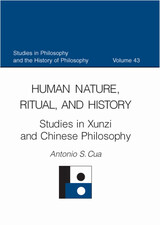

Conventional portraits of Neo-Confucianism in China are built on studies of scholars active in the south, yet Xue Xuan (1389–1464), the first Ming Neo-Confucian to be enshrined in the Temple to Confucius, was a northerner. Why has Xue been so overlooked in the history of Neo-Confucianism? In this first systematic study in English of the highly influential thinker, author Khee Heong Koh seeks to redress Xue’s marginalization while showing how a study interested mainly in “ideas” can integrate social and intellectual history to offer a broader picture of history.
Significant in its attention to Xue as well as its approach, the book situates the ideas of Xue and his Hedong School in comparative perspective. Koh first provides in-depth analysis of Xue’s philosophy, as well as his ideas on kinship organizations, educational institutions, and intellectual networks, and then places them in the context of Xue’s life and the actual practices of his descendants and students. Through this new approach to intellectual history, Koh demonstrates the complexity of the Neo-Confucian tradition and gives voice to a group of northern scholars who identified themselves as Neo-Confucians but had a vision that was distinctly different from their southern counterparts.
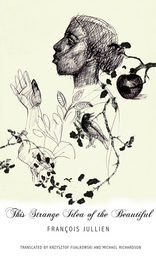
An exploration of what it means when we say something is beautiful.
Bringing together ideas of beauty from both Eastern and Western philosophy, François Jullien challenges the assumptions underlying our commonly agreed-upon definition of what is beautiful and offers a new way of beholding art. Jullien argues that the Western concept of beauty was established by Greek philosophy and became consequently embedded within the very structure of European languages. And due to its relationship to language, this concept has determined ways of thinking about beauty that often go unnoticed or unchecked in discussions of Western aesthetics. Moreover, through globalization, Western ideals of beauty have even spread to cultures whose ancient traditions are based upon radically different aesthetic foundations; yet, these cultures have adopted such views without question and without recognizing the cultural assumptions they contain.
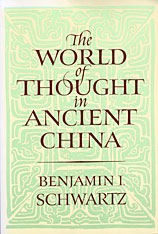
The center of this prodigious work of scholarship is a fresh examination of the range of Chinese thought during the formative period of Chinese culture. Benjamin Schwartz looks at the surviving texts of this period with a particular focus on the range of diversity to be found in them. While emphasizing the problematic and complex nature of this thought he also considers views which stress the unity of Chinese culture.
Attention is accorded to pre-Confucian texts; the evolution of early Confucianism; Mo-Tzu; the “Taoists,”; the legalists; the Ying-Yang school; and the “five classics”; as well as to intellectual issues which cut across the conventional classification of schools. The main focus is on the high cultural texts, but Mr. Schwartz also explores the question of the relationship of these texts to the vast realm of popular culture.
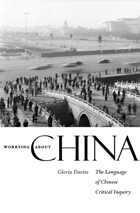
READERS
Browse our collection.
PUBLISHERS
See BiblioVault's publisher services.
STUDENT SERVICES
Files for college accessibility offices.
UChicago Accessibility Resources
home | accessibility | search | about | contact us
BiblioVault ® 2001 - 2024
The University of Chicago Press









